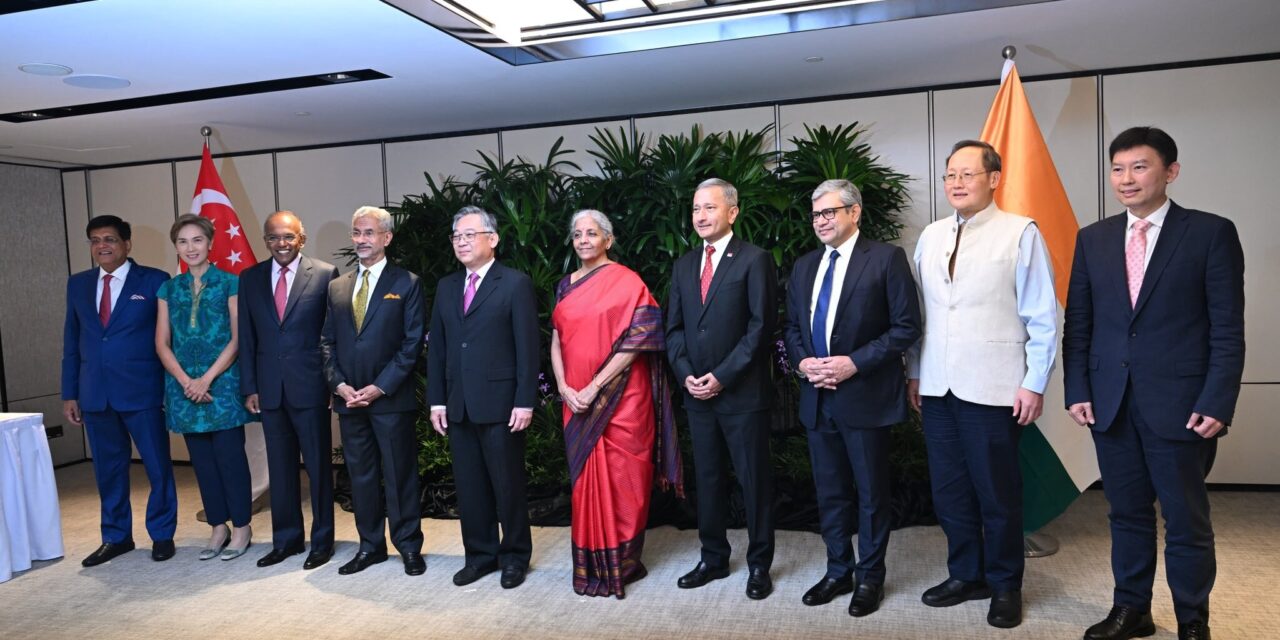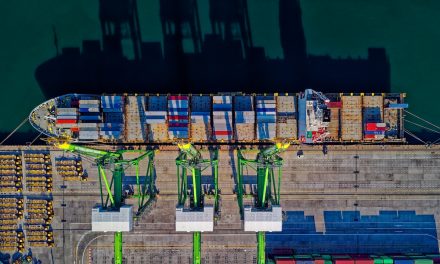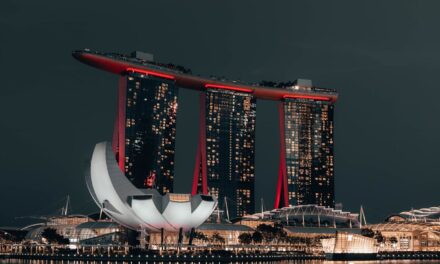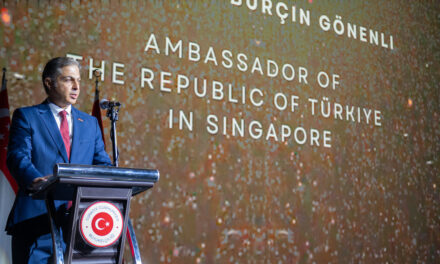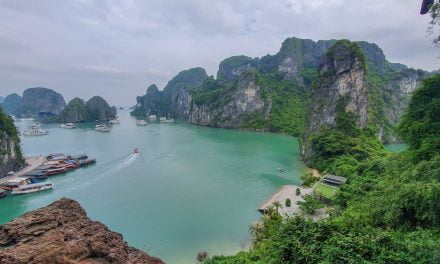Ministers from India and Singapore on Monday came together in Singapore to participate in the second India-Singapore Ministerial Roundtable.
The first ISMR took place in September 2022 in New Delhi. The ISMR took place alongside the India-Singapore Business Roundtable.
This year’s ISMR was marked by a series of high-level meetings, starting with a luncheon hosted by Singapore President Tharman Shanmugaratnam.
Discussions centered around broadening bilateral cooperation and addressing regional and global issues, Singapore’s Ministry for Foreign and Ministry of Trade & Industry jointly said on Monday.
The ministers reviewed the progress of the India-Singapore Strategic Partnership, with particular focus on the pillars of digitalization; skills development; sustainability; and healthcare & medicine, India’s Ministry of External Affairs said in a separate release on Monday.
These events precede Indian Prime Minister Narendra Modi’s visit to Singapore which will happen in the coming months.
High-level attendees
Attendees included India’s Minister of Finance & Corporate Affairs Nirmala Sitharaman; Minister of External Affairs S. Jaishankar; Minister of Commerce & Industry Piyush Goyal; and Minister of Electronics & Information Technology, Railways, Information & Broadcasting Ashwini Vaishnaw.
The official ISMR meeting was led by Singapore’s Deputy Prime Minister and Minister for Trade & Industry Gan Kim Yong, with key Singaporean ministers such as Minister for Foreign Affairs Vivian Balakrishnan; Minister for Home Affairs & Law K. Shanmugam; and several others present.
Economic cooperation takes centre stage
During the morning session, Indian ministers met with Singapore Prime Minister and Minister for Finance Lawrence Wong at the Istana, the official residence and office of the President of Singapore, where they reaffirmed the importance of the ISMR as a crucial platform for bilateral cooperation.
Both delegations emphasized the strong relationship between Singapore and India, underpinned by strong economic and people-to-people ties.
Singapore was India’s second-largest source of foreign direct investment in the financial year to 2024, with 23% of its total FDI coming from the city-state, according to national investment promotion agency Invest India. This is compared to 25% coming from Mauritius, its top FDI source, and 9% coming in from the US, taking third place.
India-Singapore Business Roundtable
Parallel to the ISMR, the second India-Singapore Business Roundtable took place, bringing together prominent business leaders from both nations.
Singaporean participants included representatives from investment firm Blackstone Singapore; global long-term investor GIC; state-owned multinational investment firm Temasek; airline company Singapore Airlines; bank DBS; state-owned energy company Sembcorp; and real estate company CapitaLand.
Indian counterparts were from multinational conglomerate and Bharti Airtel-owner Bharti Enterprises; car company Mahindra Group; motorcycle company TVS Motors; India’s National Investment & Infrastructure Fund; and digital public infrastructure company Protean eGov Technologies.
The business leaders discussed potential avenues for increased collaboration, particularly in sustainability and cross-border investments.
They agreed to work together on several initiatives, including developing industrial parks, enhancing skilling programs, and investing in infrastructure and digitalization projects.
History and future
Looking back at India-Singapore relations since the 2000s, there have been a myriad of agreements signed which are testament to the two countries’ strong bilateral ties.
Key agreements include the Comprehensive Economic Cooperation Agreement, inked in 2005, and its Second Review in 2018; the Double Taxation Avoidance Agreement, first signed in 1994, followed by protocols signed in 2011; the Bilateral Air Services Agreement, first inked in 1968, and then revised in 2013; the Defence Cooperation Agreement of 2003, with the enhanced agreement signed in 2015; the Mutual Legal Assistance Treaty, inked in 2005; the Mutual Recognition Agreement on Nursing, signed in 2018 alongside an agreement around cooperation in Fintech; and the Agreement for Conduct of Joint Army Training & Exercises, which was renewed in 2019.
Both the ISMR and the ISBR underscore how both countries are pushing for stronger and deeper ties, both acting as important strategic partners going into the future.
The roundtables not only highlight the mutual interest in bolstering economic collaboration but also show their shared commitment to addressing broader regional and global challenges.
Meanwhile, the extensive participation of high-level ministers and business leaders from both countries reflects the importance with which the two countries view each other.
With numerous agreements already in place and ongoing discussions for future cooperation, India and Singapore are poised to further enhance their strategic relationship, focusing on areas such as sustainability, infrastructure, digitalization, and skills development.
As they continue to build on their strong foundation of bilateral agreements and economic ties, the future of India-Singapore relations looks promising, with both nations set to benefit from this robust partnership.

